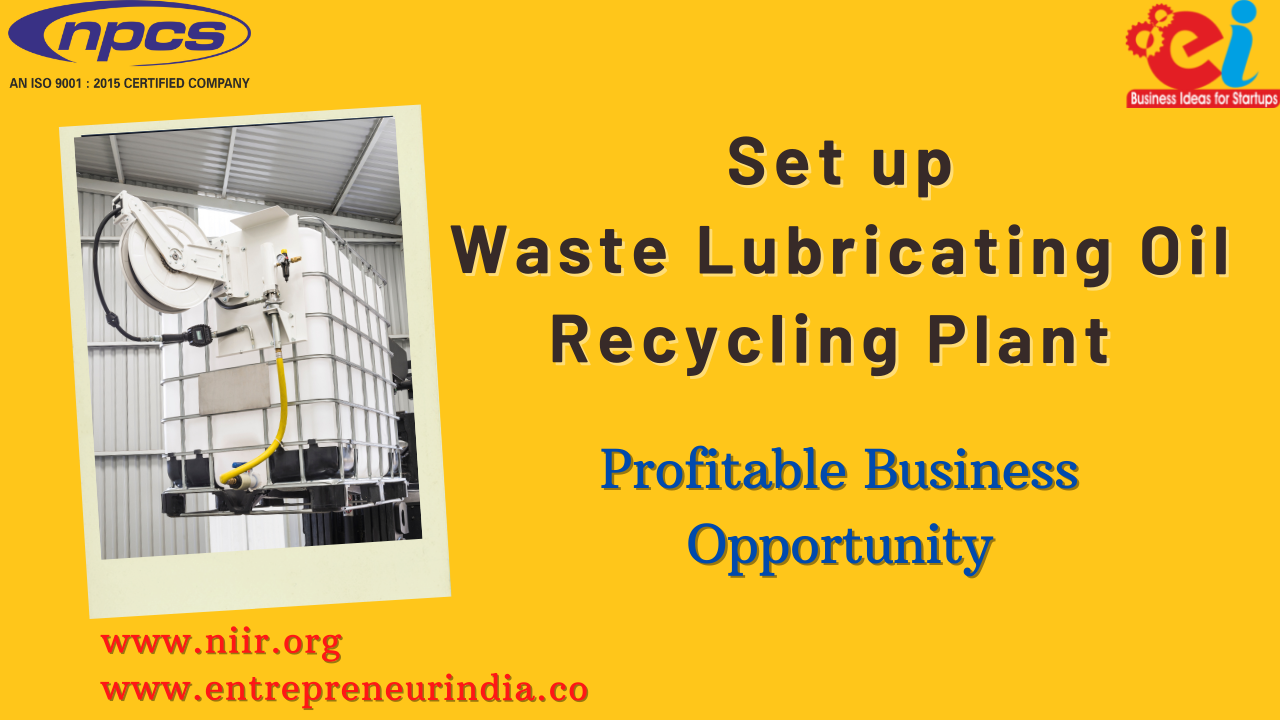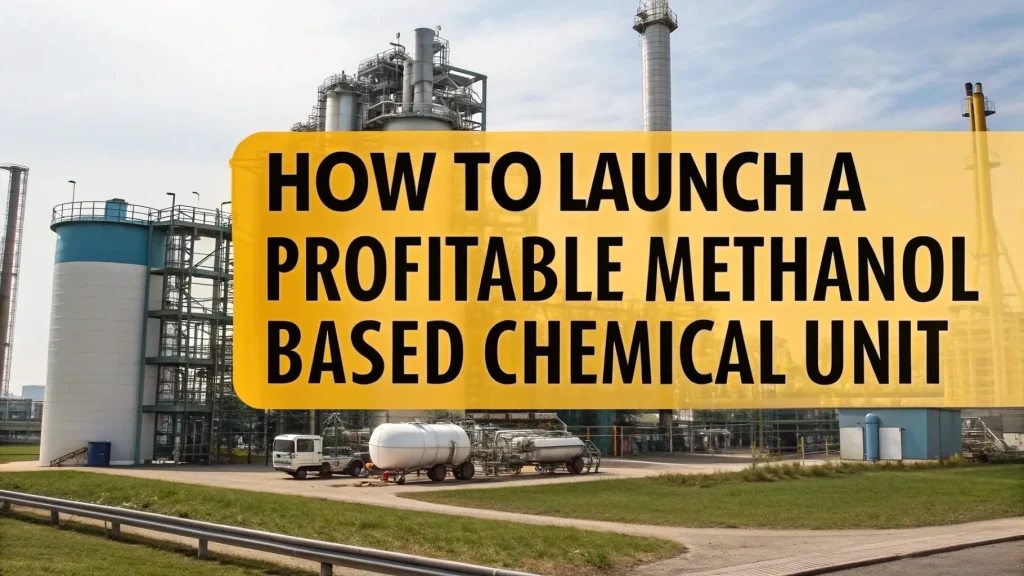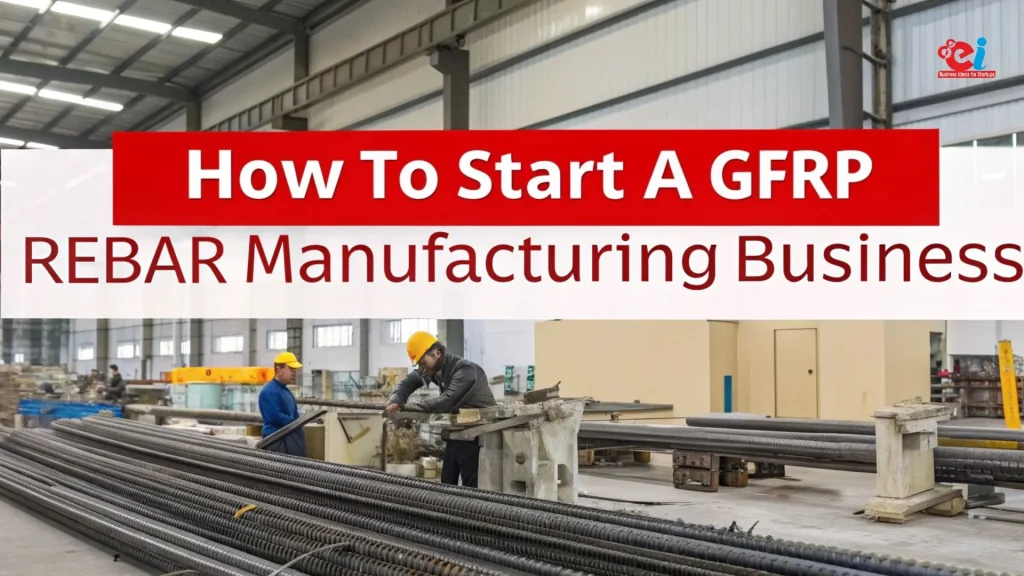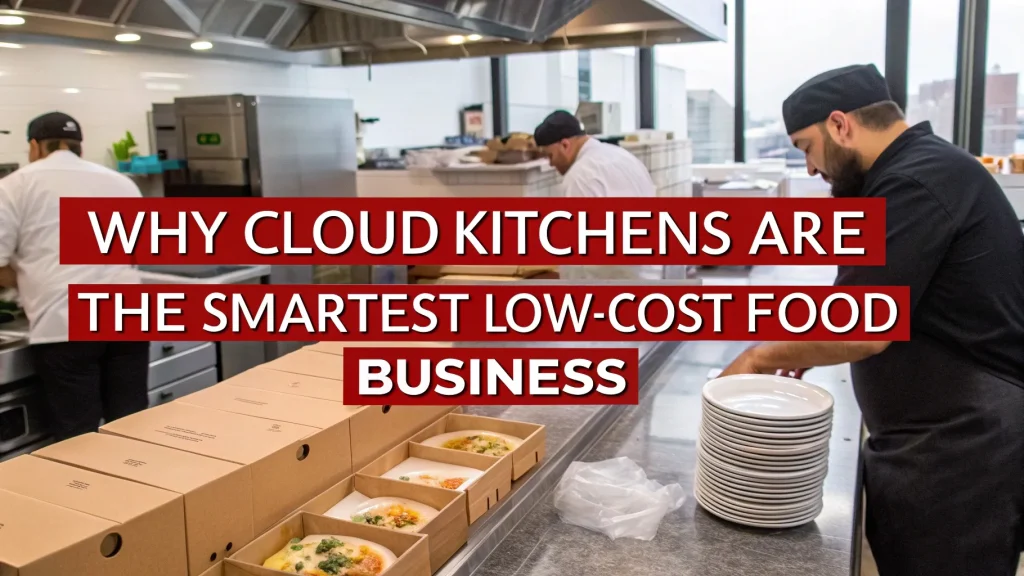
The waste lubricating oil recycling plant business opportunity is one of the most promising and environmentally essential ventures in the industrial sector today. With the massive consumption of lubricants in automobiles, machinery, generators, and industrial equipment, the generation of used or waste lubricating oil has grown significantly. Unfortunately, much of this waste oil is either burned or dumped, leading to severe environmental damage. This opens up a huge opportunity for entrepreneurs to establish a waste lubricating oil recycling plant, which not only reduces ecological harm but also recovers valuable base oil and other byproducts for reuse. The business offers high return potential, contributes to circular economy goals, and is increasingly supported by environmental regulations and policies promoting sustainable industrial practices. The recycled oil, when treated properly, can match the quality of virgin oil and be sold back into the market, making the waste lubricating oil recycling plant business opportunity both financially and ecologically rewarding.
Read our Books Here: Petroleum, Greases, Petrochemicals, Lubricants
Why Recycling Waste Lubricating Oil Is in High Demand
With the world moving toward sustainability, the waste lubricating oil recycling plant business opportunity is gaining traction due to increasing industrialization, rising vehicle use, and strict environmental regulations. Globally, millions of liters of used oil are discarded daily. Recycling this oil helps conserve resources, reduce dependency on crude oil, and limit the release of toxic substances into soil and water. Additionally, industries are seeking cleaner, certified lubricants that meet emission and performance standards—creating demand for quality recycled oils. Governments in countries like India, the US, and those in the EU are providing incentives and policy support for oil recycling plants, recognizing their importance in waste management systems. Furthermore, with industries aiming for zero-waste and carbon neutrality targets, the integration of oil recycling is becoming a standard practice in corporate sustainability frameworks. This positions the waste lubricating oil recycling plant business opportunity as a crucial part of the modern industrial economy.
Related Project: Investment Opportunities in Waste Lubricating Oil Recycling Plant
Types of Waste Lubricating Oil and Their Sources
In the waste lubricating oil recycling plant business opportunity, understanding your input source is key to success. Waste lubricating oil primarily comes from automobile service centers, transport fleets, railways, marine vessels, generators, factories, and heavy machinery workshops. These include used engine oil, hydraulic oil, gear oil, and transformer oil. Most of this waste oil contains impurities like water, dust, fuel residues, metals, and carbon. However, its base oil content remains recoverable through the right recycling process. Some waste oils also contain additives that can be separated and reused. Knowing how to source consistent and uncontaminated used oil gives recyclers a competitive edge and enhances output quality. Setting up local collection networks and partnerships with garages and factories is a practical and low-cost way to ensure supply for your recycling plant.
Watch other Informative Videos: Petroleum and Petroleum Products
Process and Technology Used in Oil Recycling
The waste lubricating oil recycling plant business opportunity revolves around advanced technology and multi-step processing. Common recycling methods include acid-clay treatment, vacuum distillation, solvent extraction, and membrane filtration. However, the most efficient and eco-friendly method is the vacuum distillation with hydro-treatment. This involves removing water and light ends, distilling the oil under vacuum to separate base oil fractions, and treating it with hydrogen to remove sulfur and improve stability. The process typically includes: pre-treatment (dehydration and filtration), thermal distillation, vacuum tower operation, and finishing stages like clay treatment or chemical neutralization. The end product is Group I or II base oil, which can be reused in new lubricant formulations. Secondary outputs include fuel oil, asphalt residue, and recovered additives. These technologies require medium to high capital investment, but offer better recovery rates, lower emissions, and meet international quality benchmarks—making them ideal for scaling the waste lubricating oil recycling plant business opportunity.
Machinery and Plant Setup
Starting a waste lubricating oil recycling plant requires specific machinery tailored to the chosen process. Essential equipment includes oil heaters, filtration units, vacuum distillation columns, cooling condensers, clay or hydro-treatment systems, and storage tanks. A full-scale setup also includes power supply units, emissions treatment systems, oil testing labs, and automation controls. The plant layout should allow for smooth material flow—from oil intake and processing to storage and packaging. For small plants (1–5 tons/day), semi-automated machinery may suffice, while large commercial plants (20+ tons/day) often need PLC or SCADA-based systems. The entire operation must follow safety standards, including fireproof structures, fume extractors, oil leak containment areas, and hazardous material handling protocols. A clean and compliant infrastructure ensures smooth operation and attracts large-volume industrial clients who prioritize certified vendors.
Cost Structure and Profit Potential
The waste lubricating oil recycling plant business opportunity offers strong financial viability with steady demand and scalable margins. Setting up a small-scale plant can cost around ?50 lakh to ?1 crore, while mid-size to large plants may need an investment of ?2 crore to ?10 crore depending on automation and capacity. The primary costs include equipment, raw oil collection, energy (especially for heating), labor, testing, and regulatory compliance. However, margins are healthy due to the low cost of waste oil and high value of recycled base oils. Recycled oil can sell at 60%–80% of virgin oil prices with margins between 25%–40%. The payback period for well-run plants is generally between 2–4 years. Value addition through branding, premium quality packaging, and certification can further improve pricing and profitability.
Legal Compliance and Environmental Norms
The waste lubricating oil recycling plant business opportunity requires several regulatory approvals before operation. In India, for example, businesses need authorizations from the State Pollution Control Board (under Hazardous Waste Management Rules), factory licenses, fire safety approvals, and possibly environmental impact assessments for larger capacities. Internationally, compliance with EPA (USA), REACH (Europe), or ISO 14001 standards is crucial. Plants must install pollution control systems, manage effluents, and follow safe disposal methods for sludge and residues. Proper documentation of used oil intake, process tracking, and disposal ensures legal protection and also builds customer trust. Regular audits and lab testing are also required to maintain compliance and demonstrate reliability in both local and export markets.
Target Market and Sales Channels
The recycled oil produced in the waste lubricating oil recycling plant business can be sold to a wide range of customers. These include lubricant manufacturers (as base oil), transport companies, generator service providers, construction companies, marine operators, and agricultural equipment suppliers. Other channels include direct B2B sales, industrial distributors, online B2B platforms like IndiaMART and TradeIndia, and even exports to oil-importing nations. Establishing a network of distributors, brand partnerships, and private label arrangements helps scale faster. Some recyclers also set up their own brands of lubricants using the recovered oil and additives, creating an end-to-end integrated model with higher margins.
Final Thoughts
The waste lubricating oil recycling plant business opportunity is not just a financially rewarding venture—it’s an essential part of the future of industrial sustainability. As global demand for lubricants rises and waste oil generation grows, the need for environmentally safe and efficient recycling becomes increasingly urgent. Entrepreneurs who invest in technology, regulatory compliance, and long-term sourcing strategies can tap into this multi-billion dollar industry. With proper execution, this business can serve environmental goals while generating consistent returns. For those looking to build a green, future-ready industrial enterprise, starting a waste lubricating oil recycling plant is a smart and impactful decision.
Watch Video: Petroleum Lubricating Oil and Grease Manufacturing Industry | Lube Oil Blending Plant
See More Links:
- Start a Business in Asia
- Related Market Research Reports
- Start a Business in Potential Countries for Doing Business
- Best Industry for Doing Business
- Business Ideas with Low, Medium & High Investment
- Looking for Most Demandable Business Ideas for Startups
- Start a Business in Africa
- Start a Business in India
- Start a Business in Middle East
- Related Videos
- Related Books
- Related Projects
NIIR PROJECT CONSULTANCY SERVICES, DELHI
An ISO 9001:2015 Company
ENTREPRENEUR INDIA
106-E, Kamla Nagar, Opp. Mall ST,
New Delhi-110007, India.
Email: npcs.ei@gmail.com
Tel: +91-11-23843955, 23845654, 23845886
Mobile: +91-9097075054, 8800733955
Website: https://www.entrepreneurindia.co
https://www.niir.org
Website: https://www.entrepreneurindia.co
https://www.niir.org





